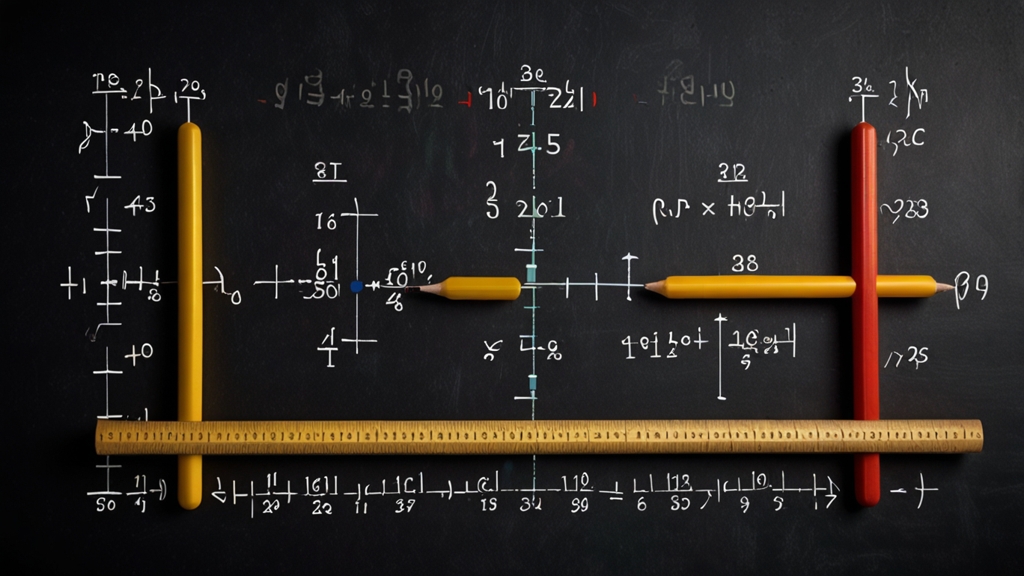Can You Believe It? Crazy Algebra Facts That Will Blow Your Mind
Algebra is often seen as a daunting subject filled with symbols, letters, and complex equations. However, beyond its reputation lies a world of fascinating and mind-blowing facts that can spark curiosity and admiration. Here, we delve into some of the most astonishing algebra facts that will not only impress you but might also change your perception of this crucial mathematical field.
The Magic of the Number Zero
One of the most fundamental and mystifying elements of algebra is the number zero. Zero is unique in that it serves both as a placeholder in our decimal system and as an identity element in addition. What's particularly intriguing is zero's behavior in multiplication and division:
Multiplying any number by zero gives a product of zero. However, dividing by zero is undefined, opening up a whirlwind of mathematical paradoxes and infinite possibilities.
This duality makes zero a cornerstone in algebra and a topic of endless fascination and exploration.
Imaginary Numbers: Not Just a Figment of Imagination
Imaginary numbers often sound like elements from a science fiction novel, but they are very real in the world of mathematics. The imaginary unit, denoted by , satisfies the equation i2 = -1. Imaginary numbers combined with real numbers form complex numbers, which have practical applications ranging from electrical engineering to quantum mechanics.
For example, Euler's identity, eiπ + 1 = 0, is celebrated as an elegant and profound equation connecting fundamental mathematical constants (e, i, π, 1, and 0) in one simple yet astonishing formula.
Imaginary and complex numbers demonstrate algebra's power to extend beyond the visible, tangible world into realms that challenge and expand our understanding.
Algebra and Geometry: A Beautiful Marriage
Algebra doesn't exist in isolation; its relationship with geometry is both profound and beautiful. Through the use of coordinate systems, algebra helps to describe geometrical shapes and transformations. René Descartes' development of the Cartesian coordinate system revolutionized mathematics by unifying algebra and Euclidean geometry.
One striking example is the equation of a circle, x2 + y2 = r2, which beautifully represents all points equidistant from a center (0,0).
This synergy between algebra and geometry has paved the way for advancements in multiple fields such as physics, engineering, and computer graphics.
Symmetry and Group Theory
Group theory is a fascinating branch of algebra that studies algebraic structures known as groups. Groups are sets equipped with an operation that combines any two elements to form a third element while adhering to specific axioms (closure, associativity, identity element, and inverses). Group theory plays a critical role in understanding symmetry in mathematical objects.
From solving polynomial equations to modeling molecular structures in chemistry, the applications of group theory are far-reaching. It helps to reveal the underlying symmetrical properties and patterns in complex systems, making it an invaluable tool in theoretical and applied sciences.
The Infinite Universe of Polynomial Equations
Polynomial equations are fundamental in algebra, featuring variables raised to whole-number exponents. Solving these equations can range from simple to extremely complex, sometimes leading to surprising and non-intuitive results. The Fundamental Theorem of Algebra asserts that every non-zero polynomial equation has a root in the complex number system, underscoring the depth and expansiveness of algebra.
What makes polynomial equations even more fascinating is their unpredictability. For higher-degree polynomials, the behavior of their roots can be erratic, leading to beautiful fractals and chaotic systems that mesmerize mathematicians and scientists alike.
Conclusion
Algebra is much more than a series of tedious exercises and abstract concepts. It's a fascinating field filled with captivating facts and principles that reveal the hidden beauty and order of the world around us. From the mystical nature of zero to the elegance of Euler's identity, and from the profound unity of algebra and geometry to the intricate symmetries in group theory, algebra is a treasure trove of mind-blowing discoveries waiting to be explored.










